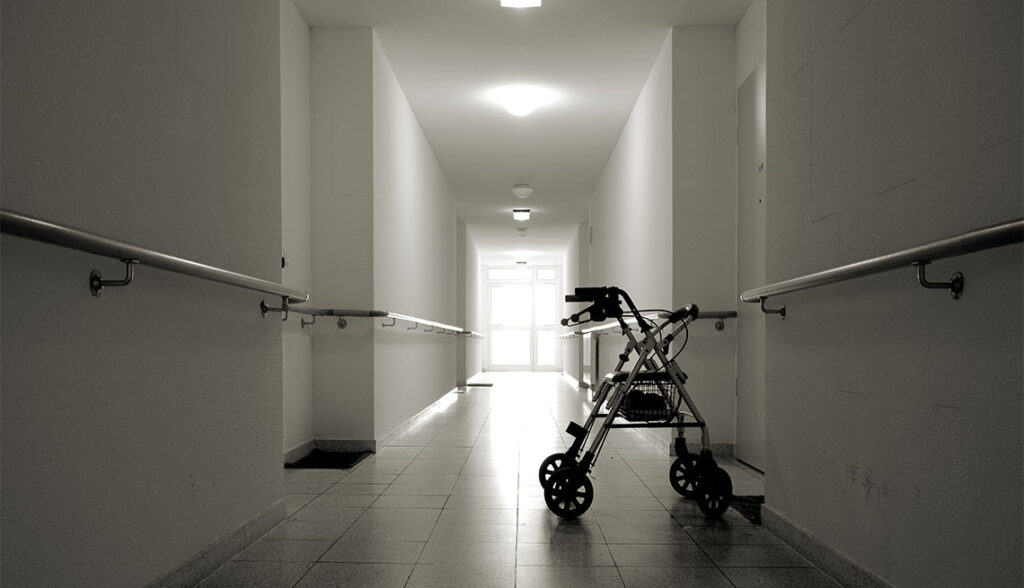CHICAGO, IL – Nursing home abuse is extremely under-reported in the United States; however, a list released by the Senate named nearly 400 facilities across the nation that had a record of “persistent poor care.” According to documents and interviews, budget cuts are the contributing factor by reducing available funds to focus on the inspections that are required for nursing homes.
Two Senators released a report in June for the families that are struggling to find the right nursing home for their loved ones. Many people had questions regarding why some homes were not disclosed, while others were publicly identified.
Senator Bob Casey, D-PA, and Senator Pat Toomey, R-PA issued the report stating, “we’ve got to make sure any family member or any potential resident of a nursing home can get this information, not only ahead of time but on an ongoing basis,” according to the Associated Press.
The report comes after the Center of Medicare and Medicaid Services (CMS) provided a list of nursing homes with ongoing issues and documented problems that were not publicly disclosed. More than 1.3 million Americans live as a nursing home resident in more than 15,700 facilities.
There is a Special Focus Facility Program in which CMS did not disclose the names of roughly 80 smaller nursing homes that are getting special inspection to help solved documented problems. Nursing homes that don’t improve and fix their standard of care could potentially be cut off by Medicaid and Medicare.
Medicare provides a website entitled “Nursing Home Compare” with detailed information regarding all Medicare and Medicaid-certified nursing homes across the country. Nursing homes that are in the Special Focus Facility Program can be identified by a small icon that is a yellow triangle.
CMS Administrator Seema Verma singled out federal budget problems as a factor according to the AP. Verma mentioned, “The number of special focus slots and total number of special focus candidates are based on the availability of federal resources. In 2010, there was room for 167 nursing homes and 835 candidates; now it’s down to 88 slots and 440 candidates.” Federal budget cuts were reduced in 2014.
Federal budget cuts are not the only factors: staffing level and clinical outcomes should be considered.
According to Modern Health Care, recent studies show that nursing home staffing levels are often much lower than what facilities are reporting. Half of the facilities that were analyzed met staffing levels less than 20 percent of the time; moreover, registered nurses in 91 percent of organizations met expectations less than 60 percent of the time. For-profit facilities were more likely to report higher staffing levels compared to not-for-profits.
This is a crucial factor when deciding what facility to place your loved one in. The Consumer Voice mentioned direct caregivers such as an RN, LPN, LVN, or CNA can have up to 5 residents in a day, 10 in the evening, or 15 at night; in addition to licensed nurses including RN, LPN, or LVN, during the day having 15 residents, in the evening 20, and at night 30 residents.
You don’t want to put your loved one in a nursing home where the staff to resident ratio is not sufficient enough care your loved one should be and needs to be given. On average, a RN in a nursing home in the United States has a salary of $61,363 as of August 2019; however, the range typically falls between $57,744 and $64,973 (Salary). It’s important to note many nursing homes are under-staffed, which means staff is overworked and underpaid, often times neglecting your loved one – especially if family is not consistently visiting.
Modern Health reported RNs spent 42 percent less time with residents on weekends, licensed practical nurses spent 17 percent less, and nurse aids spent 9 percent less. Large facilities often have a bigger decreased in staffing levels over the weekends – weekends tend to be busier than the weekdays. Staff that works long hours are more likely to lead to an increase of error while working with residents.
Clinical outcomes that should be evaluated beyond nurse staffing and patient safety, is evaluating nurses’ working conditions. Nurses could over-administer a patient’s medication, or perhaps equipment failure. Although this may seem like a small error, this can interrupt important patient care.
Nursing homes are required to provide residents with quality care. The World Health Organization defined quality of care as a “key component to the right to health, and the route to equity and dignity.” Quality of care includes safe, effective, timely, efficient, equitable, and people-centered care. Many nursing homes fall short of these expectations and requirements, and deficiencies can even go unnoticed.
It’s important to do extensive research on nursing home facilities before placing your loved one in one. Go to visit – check how residents and staff interact, what daily activities are offered, what kind of living accommodation your loved one will be in, and visiting hours.
Abuse in nursing homes and is not limited to physical, emotional, mental, or sexual abuse. It can also include financial exploitation, as well as neglect. It’s important to notify nursing home management and local law enforcement immediately if you suspect your loved one is suffering from neglect or abuse.
Our experienced nursing home abuse lawyers work diligently to seek compensation and justice for your loved one. Please call (312) 384-1920 or visit our website to schedule a free, confidential consultation in our downtown Chicago office, or we can meet wherever is convenient for you.
Contact info:
Dinizulu Law Group, Ltd.
221 N. LaSalle St., Suite 1100
Chicago, IL 60601



